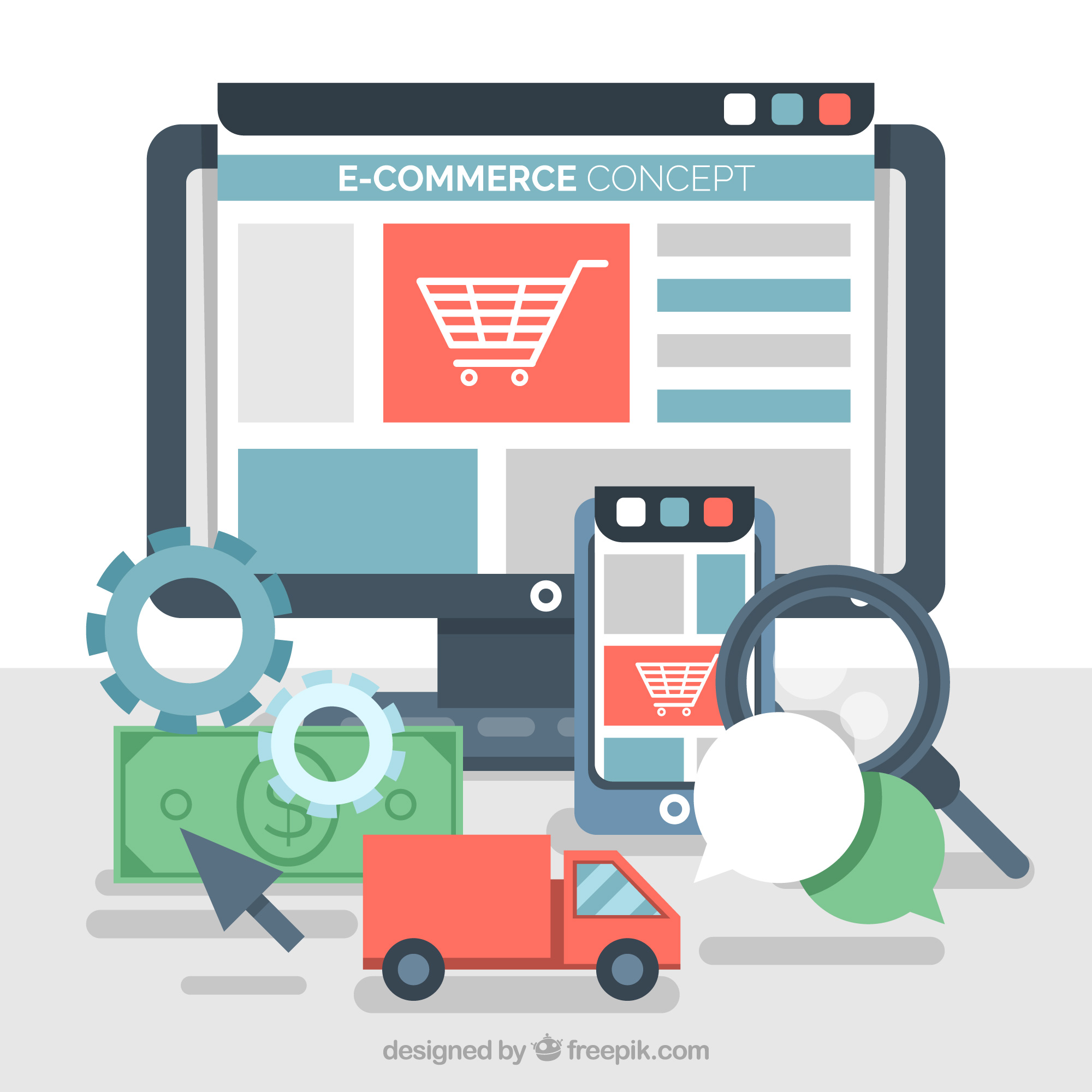The rise of online marketplaces has redefined the landscape of e-commerce. As businesses shift from traditional storefronts to digital platforms, online marketplace apps have emerged as a powerful tool for scaling operations, reaching a global audience, and driving revenue. In 2025, building an online marketplace app is more crucial than ever for businesses looking to stay competitive. With advancements in technology, consumer behaviors shifting towards digital shopping, and the potential for innovation, the question isn’t whether you should build an online marketplace app, but why you haven’t done so already.
This blog delves into the key reasons why developing an online marketplace app should be a top priority for your business in 2025.
- The Shift Towards Mobile Commerce
One of the most significant reasons to build an online marketplace app for your business in 2025 is the rapid shift towards mobile commerce (m-commerce). Consumers are increasingly relying on smartphones for shopping, with mobile sales projected to account for 73% of total e-commerce sales by 2025. This surge in mobile shopping creates an opportunity for businesses to reach customers directly on their devices through an app.
An online marketplace app offers a streamlined and optimized shopping experience, making it easy for users to browse, compare, and purchase products or services. It also provides a platform where multiple vendors can showcase their offerings, giving consumers access to a wider range of options in one place. By building an app, you’re not only adapting to modern consumer preferences but also positioning your business to capture a larger share of the mobile-first market.
- Expanding Your Customer Reach
Unlike traditional brick-and-mortar stores or even single-vendor e-commerce sites, an online marketplace app allows you to connect with a diverse and global audience. In 2025, cross-border e-commerce is expected to rise even further as consumers look for products they can’t find locally or for better deals online. By building a marketplace app, you enable buyers and sellers from all over the world to transact on your platform, significantly broadening your customer base.
A marketplace app acts as a hub where various vendors can list their products, catering to different customer needs and preferences. This vast assortment of choices drives more traffic to your platform, increases customer retention, and boosts sales. In essence, your app becomes a one-stop solution, attracting a diverse set of consumers and ensuring you’re not limited by geography.
- Leveraging AI and Personalization for Enhanced User Experience
In 2025, consumers expect highly personalized shopping experiences, and building an online marketplace app allows you to leverage AI and machine learning to meet these expectations. Through AI-powered algorithms, your app can analyze user behavior, preferences, and purchase history to offer personalized product recommendations, improving the overall shopping experience.
Moreover, AI chatbots and virtual assistants can be integrated into your marketplace app, helping customers find products, answer queries, and assist in the purchasing process. These tools not only enhance the user experience but also reduce operational costs by minimizing the need for human intervention. By personalizing the customer journey, your online marketplace app can increase user engagement, drive repeat business, and ultimately lead to higher sales.
- Building a Community of Vendors and Customers
An online marketplace app doesn’t just connect buyers and sellers—it builds a thriving community where both can interact, collaborate, and share feedback. In 2025, this sense of community will be even more valuable, as consumers increasingly seek authentic, transparent, and socially responsible brands.
Your marketplace app can incorporate features like reviews, ratings, and social sharing, enabling customers to voice their opinions and engage with products. Vendors can also benefit from customer feedback, allowing them to improve their offerings and build stronger relationships with their target audience. This feedback loop creates trust within the platform, encouraging more people to join, whether as vendors or buyers, and helping your business foster a loyal community.
- Monetization Opportunities
Building an online marketplace app opens up multiple revenue streams beyond just product sales. In 2025, businesses will continue to explore innovative ways to monetize their apps, and marketplace apps offer plenty of opportunities. Some common monetization methods include:
- Commission on Sales: Charging a percentage of each sale made through the platform.
- Subscription Fees: Offering premium vendor accounts with additional features, such as higher visibility or advanced analytics, in exchange for a subscription fee.
- Advertising: Allowing vendors to pay for advertising space within the app to increase their product visibility.
- Transaction Fees: Charging a small fee for each transaction processed through the app’s payment gateway.
These monetization strategies enable you to generate consistent revenue, even if your business model is not solely based on selling products or services directly. The versatility of a marketplace app ensures you can adapt your revenue strategy over time, keeping your business financially sustainable in the long term.
- Streamlining Operations with Technology
The integration of advanced technology in 2025 will revolutionize how businesses operate. By building an online marketplace app, you can streamline operations through automation, reducing manual tasks and improving efficiency. Features such as automated order management, real-time inventory tracking, and integrated payment gateways can significantly reduce the workload for both vendors and administrators.
Moreover, integrating advanced analytics tools into your marketplace app will provide insights into consumer behavior, vendor performance, and overall market trends. This data can be used to make informed business decisions, optimize marketing strategies, and improve the user experience.
- Keeping Up with Market Trends and Competitors
The digital marketplace is constantly evolving, and in 2025, the competition will be fiercer than ever. To stay relevant and ahead of the curve, building an online marketplace app is no longer optional; it’s a necessity. By adopting the latest technologies and features, you ensure your platform remains competitive in the face of rapidly changing market dynamics.
Competitors who fail to invest in marketplace app development risk losing market share to businesses that offer more convenient, tech-savvy shopping experiences. By building a marketplace app, you future-proof your business against disruptions and set yourself apart from less adaptable competitors.
- Meeting Consumer Expectations for Convenience
Consumers are increasingly looking for convenience, and an online marketplace app delivers just that. With features like one-click purchases, saved payment information, personalized recommendations, and instant notifications, marketplace apps make shopping fast, easy, and efficient.
In 2025, convenience will continue to be a major factor influencing purchasing decisions. By providing users with a seamless and hassle-free shopping experience, your marketplace app can enhance customer satisfaction and foster brand loyalty.
- Sustainability and Scalability
Another reason to build an online marketplace app in 2025 is the scalability it offers. Unlike a traditional store, which has physical limitations, an online marketplace app allows you to scale your business quickly and efficiently. As demand grows, your app can accommodate more users, more vendors, and more products without the constraints of a physical space.
Moreover, digital marketplaces are more sustainable than traditional retail models. By minimizing physical infrastructure and reducing the need for printed marketing materials, businesses can lower their carbon footprint. As sustainability becomes a key focus for consumers, having an environmentally conscious business model will not only attract more customers but also enhance your brand’s reputation.
Conclusion
Building an online marketplace app for your business in 2025 is a strategic move that promises numerous benefits. From expanding your customer reach and offering personalized shopping experiences to unlocking new monetization opportunities and staying competitive in a fast-evolving market, the advantages of developing a marketplace app are clear. As mobile commerce continues to dominate the e-commerce landscape, an online marketplace app will be an essential tool for businesses seeking growth, innovation, and long-term success. Whether you’re a startup or an established enterprise, now is the time to invest in your marketplace app to future-proof your business and meet the demands of tomorrow’s consumers.








